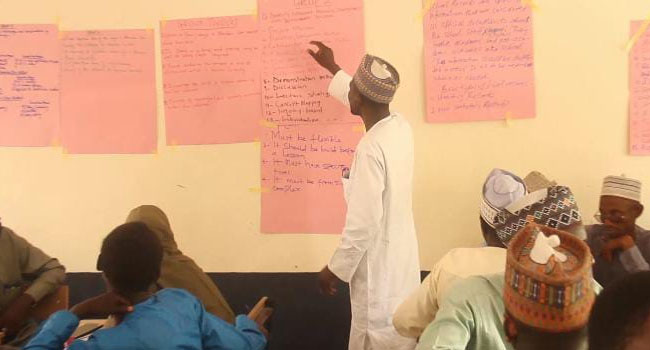TEACHERS ARE THE GUARDIANS OF OUR FUTURE: KATSINA'S EFFORT IN FOCUS

By Abdulkadir Yusuf
At the recent UNESCO World Summit on Teachers in Santiago, Chile, United Nations Deputy Secretary-General Amina Mohammed described teachers as the “guardians of our future.” She warned that the world is facing a deepening teacher crisis, which threatens the achievement of global education goals. She called for urgent reforms, fair policies, and strong investment in the teaching profession.
This message connects strongly with what is already happening in Katsina State. The Ministry for Basic and Secondary Education under the leadership of Hajiya Zainab Musa Musawa and the State Universal Basic Education Board (SUBEB) under the chairmanship of Alhaji Kabir Magaji have been working to strengthen the teaching profession and improve the quality of learning across the state. Their efforts show that Katsina is moving in the same direction as the UN’s call to action.
In Katsina, teachers are being supported through training programmes, workshops, and continuous professional development. The government, under Governor Mallam Dikko Umar Radda, PhD, has also provided digital tablets and learning tools to help teachers keep pace with modern methods of teaching. These steps are giving teachers more confidence and better skills to manage classrooms effectively.
The state government has also placed education high on its budget priorities, ensuring that funds are allocated for school infrastructure, teacher recruitment, and capacity building. This reflects the UN’s message that education must come before other competing expenses if progress is to be made.
Katsina is also paying attention to the role of women in education. More female teachers are being encouraged to join the profession and to take leadership positions. This helps young girls see role models in their schools and communities, while also addressing gender gaps in the sector.
Another important area is the digital transformation of education. Through SUBEB, teachers are being introduced to e-learning resources and technology-based teaching. This is preparing both teachers and learners for a world where technology and artificial intelligence will play a bigger role in education and work.
The state government has not forgotten the teachers working in areas affected by insecurity. Efforts are being made to provide safe learning environments and support for teachers who are working in difficult conditions. This reflects the UN’s reminder that teachers in crisis zones deserve more than admiration, they deserve real protection and resources.
Just as the UN deputy chief urged world leaders to set clear targets for recruitment, retention, and fair treatment of teachers, Katsina State is already showing commitment in this direction. By aligning local reforms with global recommendations, Katsina is contributing to the vision of quality education for all by 2030.
As Amina Mohammed emphasized, “Without teachers, none of the Sustainable Development Goals can be achieved.” Katsina’s investment in its teachers proves that it understands this truth, placing educators at the very heart of the state’s development agenda.

